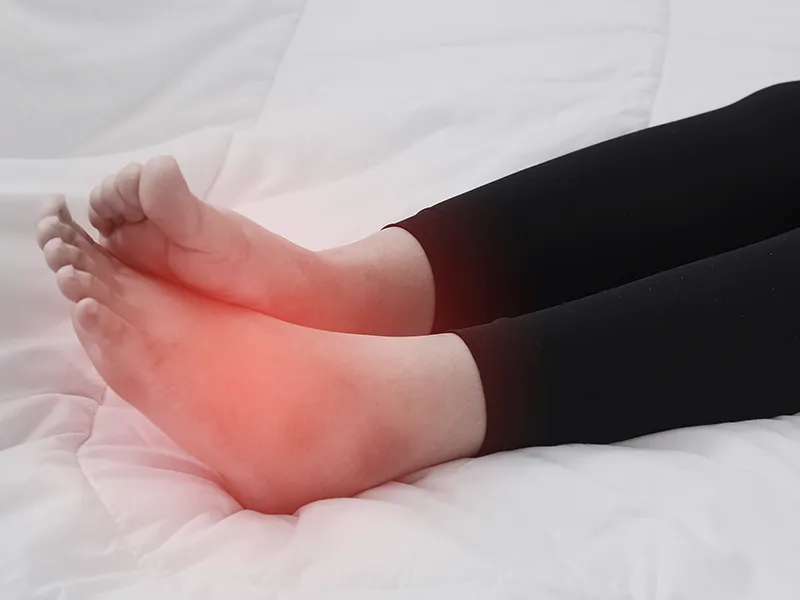
How Diabetes Affects Your Feet
Diabetes can cause poor blood circulation, slowing the healing process for wounds and ulcers. It also damages nerves (a condition known as neuropathy), which reduces sensation in your feet. Without this natural feedback, you might not notice cuts, blisters, or injuries until they worsen.
Pressure sores, calluses, and infections are common foot problems in diabetics. These issues often worsen if left untreated. Daily foot checks, proper hygiene, and prompt medical attention play a key role in keeping complications at bay. Specialized footwear, like diabetic shoes, is another important piece of the puzzle to safeguard foot health.
Features & Benefits of Diabetic Shoes
Diabetic shoes are more than just footwear—they’re vital orthotics in protecting your foot health. Here’s how they do it:
Generous Depth
Diabetic shoes include extra space to accommodate custom inserts and reduce friction. With more room, your feet stay comfortable, and pressure points are minimized, lowering the risk of blisters and sores.
Seam-Free Interiors
The interiors of diabetic foot care shoes are smooth and seamless. This reduces irritation and prevents small abrasions that can lead to ulcers.
Soft, Cushioned Soles
These soles distribute weight evenly and absorb shock, improving comfort during daily activities. This even pressure protects sensitive areas and promotes healthy circulation.
Lightweight, Breathable Materials
Diabetic shoes use supportive materials that are both lightweight and breathable. Enhanced airflow reduces moisture buildup, helping prevent infections.
3 Tips for Choosing & Using Diabetic Shoes
Choosing the right diabetic shoes and using them effectively can make a big difference in protecting your feet. Here are 3 tips to help you get the most out of your specialized footwear:
#1 Selecting the Right Pair
Always measure both your feet and choose shoes that fit well. Adjustable closures like Velcro allow you to accommodate any swelling throughout the day.
#2 Maximizing Performance and Longevity
Inspect your shoes regularly and replace them if they wear down. It’s better when you pair them with diabetic-friendly socks for added comfort and protection.
#3 When to Seek Professional Guidance
We recommend you consult a healthcare provider for personalized advice. They can guide you toward a pair of shoes suited to your needs.
Unified Medical Equipment Solutions: Your Trusted Partner in Foot Health!
At Unified Medical Equipment Solutions in Arkansas, we understand how critical proper foot care is for managing diabetes. Our diabetic shoes and inserts are specially designed to meet your foot health needs. Our orthotics provide comfort, prevent injuries, and promote long-term wellness.
We’re committed to personalized, attentive care so that you can stay active and protect your feet. Explore our range of orthotic and prosthetic services today!
